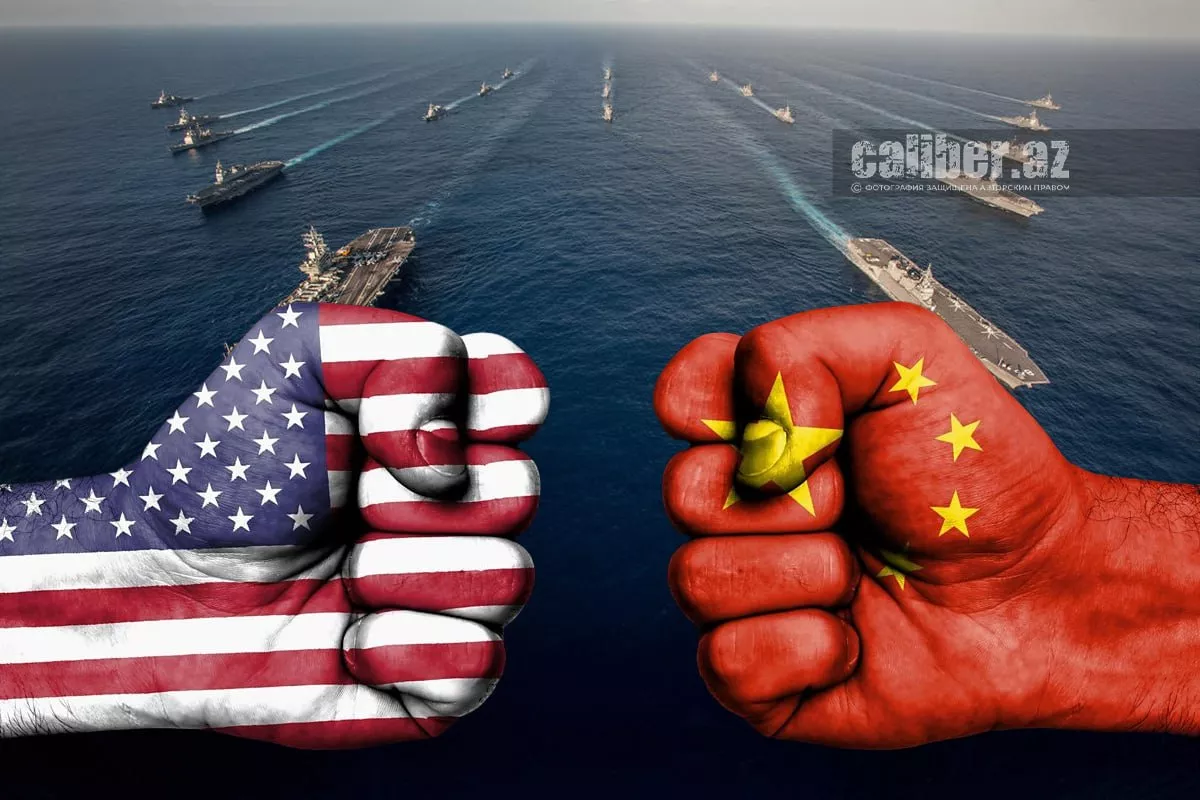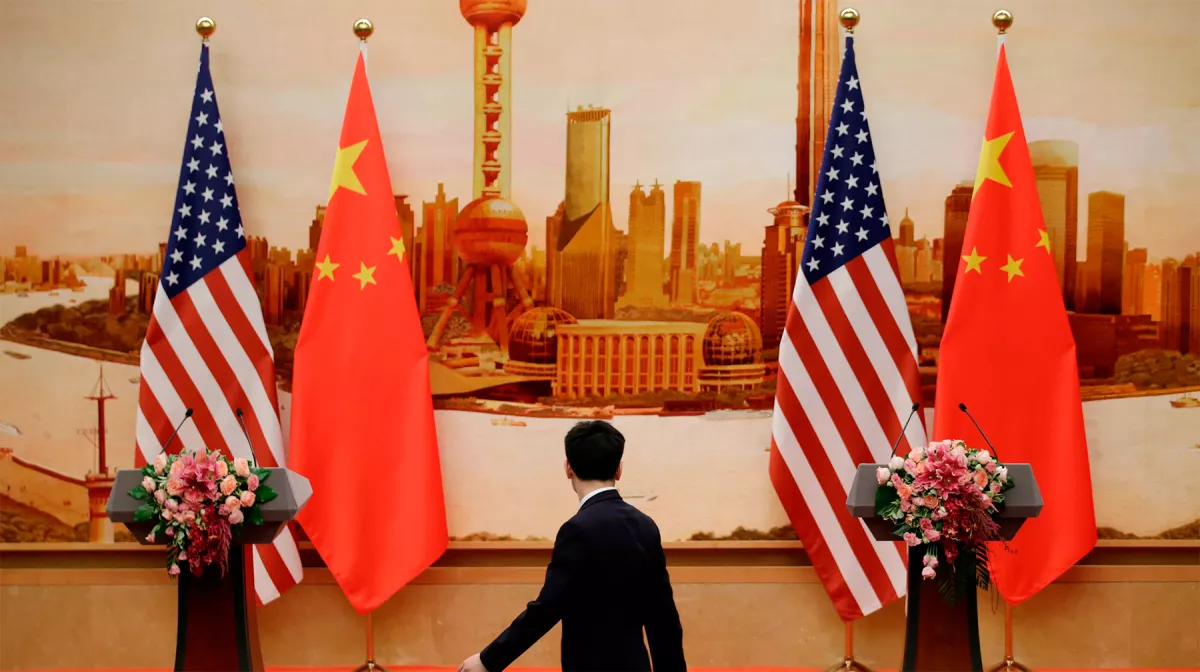From Hawaii to Taiwan Strait: Arc of geopolitical tension Beijing warns Washington
In late November, reports emerged about the upcoming seven-day tour of the "head of the Democratic Progressive Party (DPP) administration of Taiwan," during which he was set to visit the Marshall Islands, Palau, and Tuvalu. It was noted that he would make transit stops in Hawaii and Guam. The nuance here is that the visit was planned to include stops at American military bases in the region, specifically the location of the US Indo-Pacific Command based in Hawaii.
Naturally, the Hawaii stop initially caused strong disapproval from China, especially in light of the statement made by the "head of the administration" that during the visit, he would demonstrate to everyone how Taiwan is "not only a model of democracy, but also a key force in promoting global peace, stability, and prosperity."
As a result, China's Ministry of Defense issued a stern warning, stating that the Chinese military would firmly thwart any separatist actions aimed at Taiwan's so-called "independence" and would ensure the failure of any external interference. It was further emphasized that "the political manipulation and provocations of the DPP administration in this direction will never be able to halt the historical trend of China's reunification."
Meanwhile, China's Ministry of Foreign Affairs urged the White House to adhere to the "One China" principle and " stop sending wrong signals to 'Taiwan independence' separatist forces." Strongly opposing the idea of sending representatives of the Taiwan administration to the US under any pretext or justification, Beijing condemned any form of US support for proponents of Taiwan's so-called "independence" and their separatist actions.

In his speech in Honolulu, Hawaii, delivered in a closed format, the "head of the DPP administration" spoke about "jointly building a prosperous future," presenting Taiwan as a "reliable partner in the Indo-Pacific region (IPR)." At the same time, he held phone and video talks with several American politicians, including the well-known Nancy Pelosi, who reaffirmed her commitment to continue supporting Taiwan on the international stage and provocatively "praised the Taiwanese people as courageous and lauded Taiwan's commitment to freedom and democracy."
On December 1, Beijing, expressing outrage over the US State Department's approval of another arms sale to Taiwan worth $385 million, announced the implementation of strong countermeasures to firmly protect its sovereignty, security, and territorial integrity. According to China's Ministry of Defense, through such actions, the White House, while claiming to promote stability, is actually interfering in China's internal affairs and undermining peace in the Taiwan Strait. Following this, Beijing condemned the attempts by the DPP administration, which disregards the cost in terms of the security and well-being of the Taiwanese people, to achieve so-called "independence" through US support and coercive methods. In a subtle Eastern manner, it was emphasized that "in the end, they, like moths flying into the flame, will only destroy themselves." Following words with action, China sent 24 military aircraft and nine ships into the Taiwan Strait.
Thus, as it appears, tensions in the Indo-Pacific region are not subsiding, but rather intensifying. These tensions are fueled by statements like the one from Nancy Pelosi, who claimed that "Taiwan’s absence in the Indo-Pacific region would have unimaginable impacts on both the global economy and security." In parallel, it's worth recalling that last summer, in light of Washington's approval of yet another arms sale to Taiwan, the Pentagon issued a statement saying that the move "will help improve the security of the recipient and assist in maintaining political stability, military balance, and economic progress in the region."

In this context, the US is undoubtedly well aware of the potential consequences of its anti-China policies. During his meeting with US President Joe Biden on the sidelines of the APEC summit in Peru on November 17, Chinese President Xi Jinping stated that "the United States should not interfere in issues concerning the South China Sea." He also pointedly urged Washington to "respect China's red lines."
Notably, during the discussion, Xi expressed Beijing's readiness to work with the incoming US administration of Donald Trump, emphasizing that China’s goal for the next four years remains "stable and healthy relations between the two nations." However, he cautioned that progress is possible only if "both countries treat each other as partners and friends, seeking common ground." Conversely, if they "view each other as rivals or adversaries, engaging in fierce competition and seeking to harm one another, we will not only damage relations but set them back significantly."
It is quite clear that few would dare to confidently predict geopolitical calm in US-China relations anytime soon, even considering Trump’s expressed desire to pursue his presidency in an atmosphere of global peace. This is especially true given the White House's persistent threats to raise tariffs on Chinese goods, a move that would undoubtedly fuel a trade war with global repercussions.
Equally undeniable is the likelihood that, in the context of potential bilateral tensions, interested parties will actively exploit separatist tendencies in Taiwan. However, these forces will undoubtedly take note of China's Ministry of Defense statement, reaffirming the People's Liberation Army's commitment to enhancing combat readiness to decisively thwart any attempts by separatist forces advocating for so-called "Taiwan independence" or external interference.
As history has shown, Beijing's actions tend to align closely with its words.








